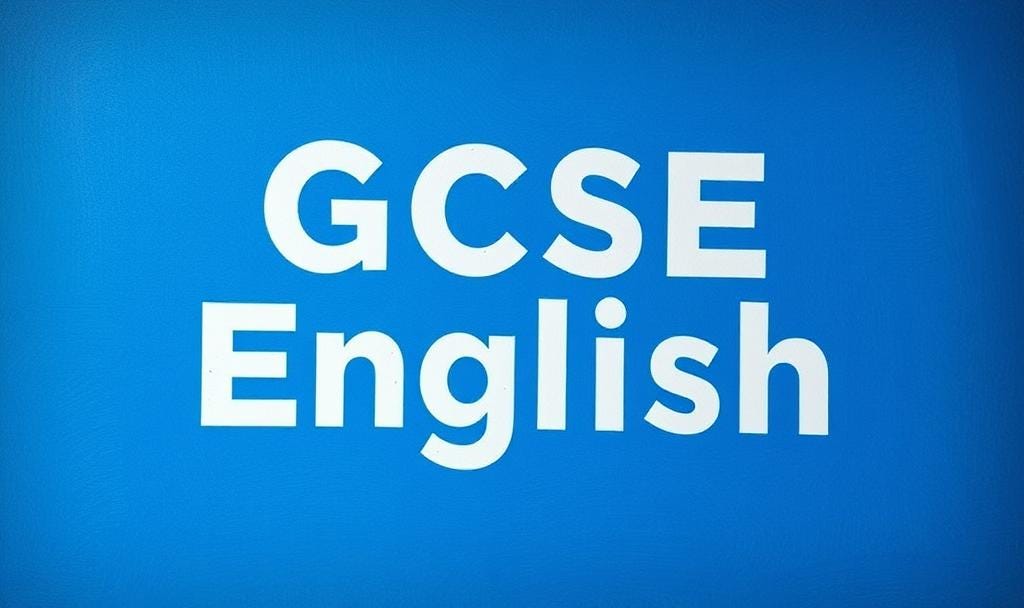Are you preparing for your GCSE English Language or Literature exams? Don’t let these common mistakes cost you valuable marks! In this video, we reveal the 27 most common pitfalls students face during their exams—and how to avoid them.
From ignoring the question to rushing your writing, we’ve got practical tips and expert advice to help you succeed. Watch now and boost your chances of acing your GCSEs
Literature Section
One - Ignoring the Question: Writing everything you know about the text, even if the examiner didn’t ask for it.
Pro Tip: Answer the question directly—don’t turn it into a creative writing task.
Two - No Planning: Diving straight in without a clue where you’re going.
Pro Tip: Spend 5 minutes planning to avoid taking your essay on a scenic detour.
Three - Weak Thesis Statement: Starting your essay with a vague or wishy-washy point.
Pro Tip: Write a strong argument in the first paragraph to steer your essay.
Four - No Quotations: Writing an essay without evidence is like baking without ingredients.
Pro Tip: Include short, relevant quotes to back up your points.
Five - Misquoting or Overquoting: Getting quotes wrong or drowning your essay in text from the book.
Pro Tip: Pick concise quotes and analyze their meaning.
Six - Ignoring Context: Forgetting that the author didn’t live in 2024.
Pro Tip: Sprinkle in historical or social context where it supports your argument.
Seven - Superficial Analysis: Saying, “This shows the character is sad,” and calling it a day.
Pro Tip: Ask why the writer made them sad and how it affects the story.
Eight - Overloading Techniques: Listing every device you can think of without explaining any.
Pro Tip: Focus on one or two key techniques per quote and explore their effect.
Nine - Forgetting to Compare (Poetry): Treating the poems like they’re not in the same exam.
Pro Tip: Find similarities and contrasts—this shows you really understand them.
Ten - Retelling the Plot: Turning your essay into a summary instead of an analysis.
Pro Tip: Assume the examiner knows the story—your job is to explain why things happen.
Language Section
Eleven - Ignoring the Format: Writing a persuasive letter that looks more like a storybook.
Pro Tip: Stick to the conventions—letters, speeches, and articles all have their own rules.
Twelve - Mismanaging Time: Spending too long on reading tasks and rushing the writing section.
Pro Tip: Divide your time evenly and move on if you get stuck.
Thirteen - Skipping Inference (Reading): Focusing only on what’s obvious in the text.
Pro Tip: Look deeper—ask what the writer implies or hints at.
Fourteen - Poor Spelling and Grammar: Losing marks because of sloppy mistakes.
Pro Tip: Proofread your work for silly errors, especially homophones like "their" and "there."
Fifteen - Ignoring Writer’s Intentions: Talking about what the text says but not why.
Pro Tip: Always ask, “What is the writer trying to make the reader feel or think?”
Sixteen - Overusing Informal Language: Writing casually when the task calls for formality.
Pro Tip: Match your tone to the task—a persuasive article isn’t a WhatsApp message.
Seventeen - Not Using Structural Features: Ignoring sentence types, punctuation, and paragraphing.
Pro Tip: Discuss how the writer’s structure impacts the reader.
Eighteen - Forgetting the Audience: Writing without considering who you’re talking to.
Pro Tip: Adapt your language and tone to suit the audience.
Nineteen - Weak Vocabulary: Sticking to basic words like “good” and “bad.”
Pro Tip: Use specific and interesting vocabulary to impress the examiner.
Twenty - No Practice: Thinking you’ll magically ace the exam without timed practice.
Pro Tip: Do past papers in exam conditions to build confidence.
General Mistakes
Twenty-One - Not Revising for English: Thinking there’s nothing to revise for English because “you just write essays.”
Pro Tip: Revise quotes, key themes, characters, and language techniques—you’ll thank yourself later.
Twenty-Two - Not Planning Writing Tasks: Jumping into descriptive or persuasive writing without a plan.
Pro Tip: Spend 5 minutes planning—your writing will be much more focused.
Twenty-Three - Ignoring Timing Strategies: Not keeping track of time during the exam.
Pro Tip: Allocate time for each section and stick to it.
Twenty-Four - Not Reading the Question Properly: Missing key instructions or focus points.
Pro Tip: Underline keywords in the question to stay on track.
Twenty-Five - Panicking Over Unfamiliar Words: Getting stuck on tricky words and losing confidence.
Pro Tip: Use the context to figure out the meaning, then move on.
Twenty-Six - Forgetting to Proofread: Rushing to finish and skipping a final check.
Pro Tip: Save a couple of minutes at the end to tidy up grammar and spelling.
Twenty-Seven - Relying on Overly Complex Ideas: Trying to sound too clever with ideas you don’t fully understand.
Pro Tip: Keep your points clear and grounded—it’s better to be concise than confusing.











